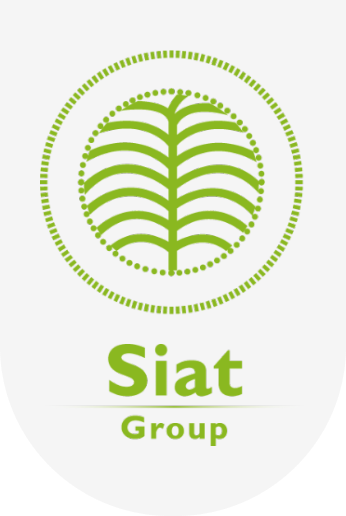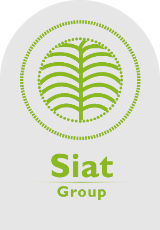Breeding, Cloning, Biotechnology and R&D
To address the challenges of agriculture sector
Growing population requires more commodities especially in the food and personal care sector.
This means we need commodities and thereby land.
The challenge is efficiency: growing more in less land, or most output with the minimum input. Innovation plays a critical role in addressing these challenges, and Siat Group is well-placed to be a game-changer in this.
Deroose Plants,
part of the Siat Group
Deroose Plants & Exotic Plant are a worldwide supplier of elite young plant material for growers.

Breeding
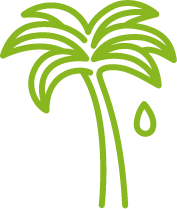
Propagating
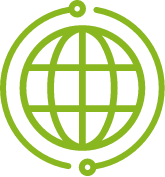
Distributing

Worldwide
Breeding
Propagating
Distributing
Worldwide
Deroose Plants is a platform striving for continuous innovation in tissue culture solutions and biotechnology, to provide best plant genetics to plant growers.
Being the world’s largest Bromeliad young plants supplier, and constantly developing new varieties, in recent years, Deroose focused on tissue culture technology for industrial and food crops to address the pressing challenges in agriculture. Deroose is the first and unique largest global company developing and producing rubber trees by using tissue culture technology. They have production facilities in Belgium, China and USA.
Acquiring Deroose Plants was a strategic investment for the future, enabling Siat to secure its proprietary supply of elite planting materials.
- High-yielding and at the same time better resistant to disease and drought
- A frontrunner in rubber, oil palm cacao in-vitro tissue culture research and mass-propagation
Research & development
for agricultural optimization
Sustainable development in oil palm and hevea relies upon the understanding of underlying biological, human, and industrial processes, and the capacity to optimize production factors and their interactions.
Siat strongly supports this objective through continuous commitment to research and innovation that encompasses both agronomic R&D for yield intensification and process optimization as well as strategic long-term partnerships that keep us at the forefront of planting material development and agricultural digitalization.
These R&D efforts are built upon an enabling platform of collaborations with international research institutes, specialized input and service providers and universities in both Africa and Europe.
Agricultural R&D
& Information Management Systems
Agricultural productivity is determined by the interacting characteristics of genotype, environment, and management while optimalization is governed by the combined effects of yield determining, reducing, and limiting factors for intensification and efficiency assessments.
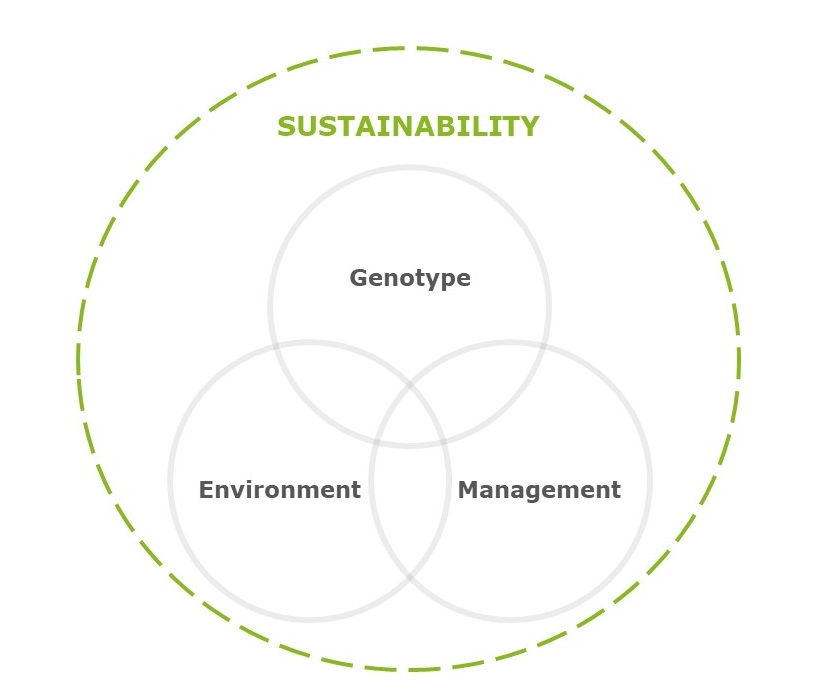
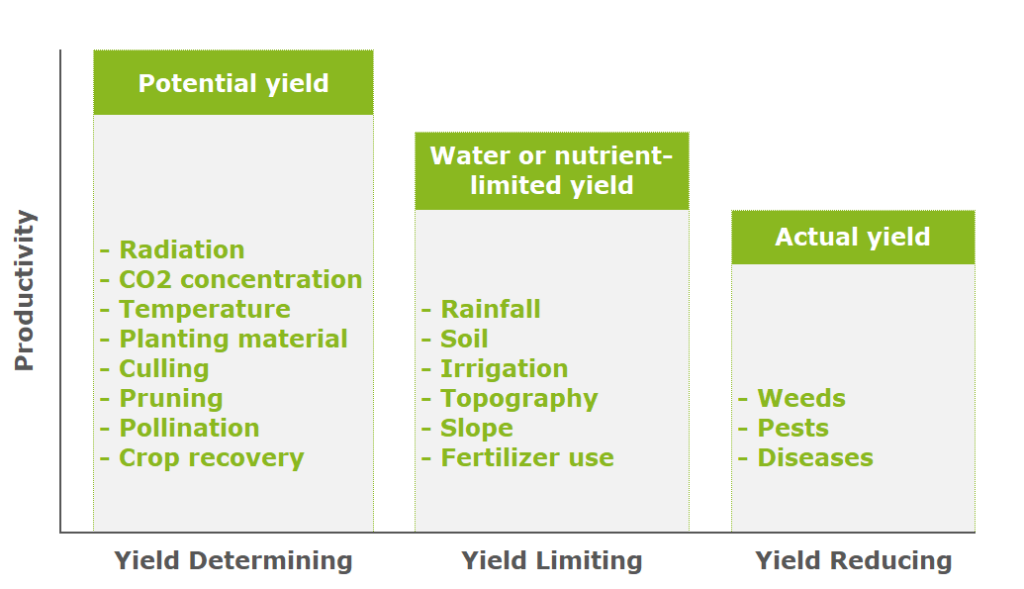
Optimizing Genotype-Environment-Management interactions within a sustainability framework is key to agricultural productivity and eco-efficiency
Yield gap analysis enables both land-use intensification and (economic) efficiency assessments
Our R&D department works closely with the plantation management for the implementation of research and support activities on agronomic practices, crop nutrition and soil fertility, mechanization and labour productivity, as well as phytosanitary monitoring and control. Further collaboration with ERP specialists for building and developing database systems ensures that all relevant data and information is captured in a correct and timely manner and linked to other business management modules. By integrating this Agricultural Information Management System into GIS and business intelligence platforms it provides valuable tools and knowledge to support the decision-making process for plantation management.
| Topics and Research Activities | Presco | SNL | GOPDC | CHC | |
| Fertilization and soil fertility | Ongoing | 6 | 2 | 2 | 2 |
| Completed | 4 | 2 | 7 | – | |
| Cumulative years | 71 | 14 | 65 | 10 | |
| Other Agronomy topics | Ongoing | 2 | – | – | 1 |
| Completed | – | – | – | 5 | |
| Cumulative years | 20 | – | – | 21 | |
| Planting Material Oil Palm | Ongoing | 27 | – | – | – |
| Completed | 4 | – | – | – | |
| Cumulative years | 261 | – | – | – | |
| Planting Material Hevea | Ongoing | 9 | – | 2 | 5 |
| Completed | – | – | – | – | |
| Cumulative years | 15 | – | 11 | 24 | |
Partnerships on oil palm
genetic improvement for Africa
Most trials aim to determine the breeding values of parents for a new generation of planting material. Other trials are part of larger international efforts to improve drought resistance and fertilizer use efficiency both critical for long term resilience in the lights of climate change and growing resource scarcity.
Moreover, the project further enables a diversification of disease resistant planting material as well as the introduction of additional traits of interest (improve quality, reduce processing losses, compact size to increase land productivity, etc.).
Most trials aim to determine the breeding values of parents for a new generation of planting material. Other trials are part of larger international efforts to improve drought resistance and fertilizer use efficiency both critical for long term resilience in the lights of climate change and growing resource scarcity.
These efforts, by ensuring perpetual progress in genetic potential and regional adaptation, not only provide the Siat group with guaranties regarding the quality of planting materials used but also safeguard the sustainable growth of the African oil palm industry in general, primarily by increasing yield and thus reducing the need for land conversion or deforestation.

Innovate
& Support

Partnerships for Innovation & Optimization
- Collaborations with oil palm breeders
- Tissue Culture applications
- ERP & digitalization
- Data science
- Remote sensing/Drone/GIS
- Fertilizer use efficiency and soil fertility
- Integrated pest management
- Mechanization

Research for development
- Rubber
- Oil Palm
- Academic collaborations (North-South)
- Industry support (Smallholders)
- Landscape Integration
- Advisory
- Analytical
- Technology
